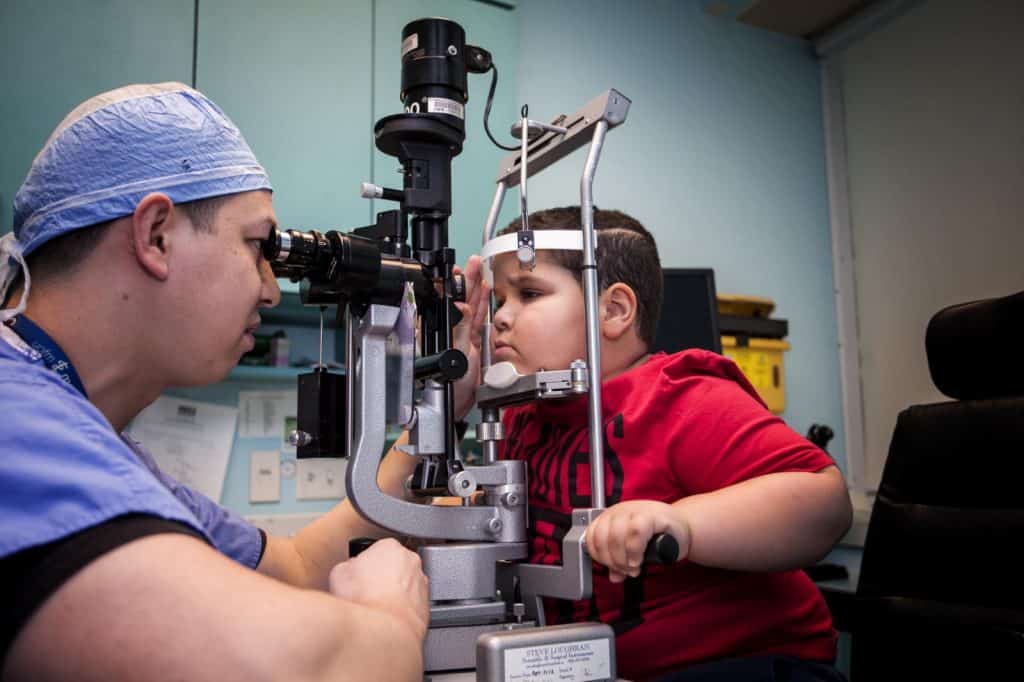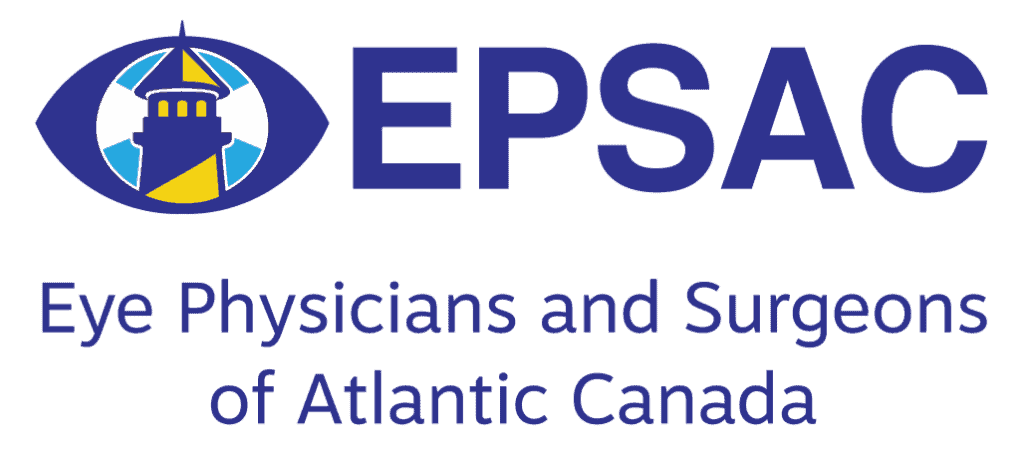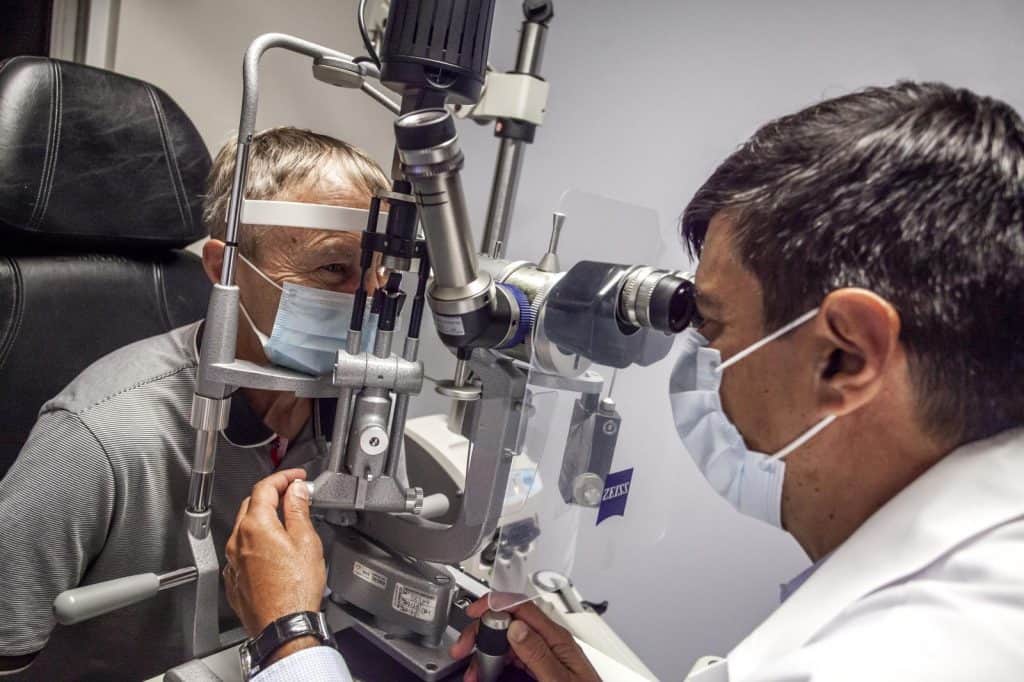Most Atlantic Canadians will have several different individuals involved their eye care. The main three are usually, ophthalmologists, optometrists and opticians. Check out this video to learn more about the 3 Os of your Eye Care Team
Ophthalmologists
Ophthalmologists are medically trained doctors (MD) who specialize in the evaluation, diagnosis, medical and surgical management of eye diseases. In Canada, ophthalmologists have completed extensive training. The training for most ophthalmologists begins with a Bachelor’s degree, and then is followed by a medical degree (Doctor of Medicine). Having a medical degree gives ophthalmologists a strong foundation in the fundamental subjects of medicine and experience in the day-to-day management of patients. After medical school, the next step in training is to complete a 5 year ophthalmology residency program which focuses specifically on the anatomy, physiology and diseases of the eye. During the residency training, the last 24 months is generally composed of extensive surgical training. This enables an ophthalmologist to have a comprehensive approach to eye disease and offer both medical and surgical treatments. In order words, an ophthalmologist is an eye physician & surgeon. Many ophthalmologists will then go on to complete an additional 1-2 years of training in a specific sub-specialty of the eye.
Optometrists
Optometrists are primary health care providers who specialize in the examination, diagnosis and prevention of eye disease. In certain cases an optometrist may also be able to provide treatment and prescribe some medications. An optometrist will have completed a four year degree to obtain a Doctor of Optometry.
Opticians
Opticians are licensed professionals who are specially trained to design, fit and dispense eyeglasses, contact lenses and low vision aids.


The Atlantic Provinces Ophthalmology Society (APOS) was established over 50 years ago and its membership includes practicing and retired ophthalmologists within the provinces of Nova Scotia, PEI, New Brunswick and Newfoundland and Labrador. The purpose of this society is to create a platform for collegiality, discussion and advocacy for provision of ophthalmological care. Through these means, its members strive to elevate the standards of patient care in Atlantic Canada. More recently in 2021, APOS was renamed the Eye Physicians and Surgeons of Atlantic Canada (EPSAC). Annual meetings rotate between the four provinces, where members present and debate important issues relating to provision of patient care and receive up to date continuing education.
EPSAC members range from comprehensive ophthalmologists providing essential care in all major areas of ophthalmology, to sub-specialists who provide expertise in a specific ophthalmic sub-specialty. These sub-specialists may also provide some general ophthalmology care including cataract surgery. Geography of practice also vary substantially between mainly rural, academic and a mixture of these. The primary sub-specialties of ophthalmology are listed here:
- Cataract and refractive surgery
- Cornea and external/anterior segment disease
- Glaucoma
- Neuro-ophthalmology
- Oculoplastic surgery (eyelid, orbit and lacrimal)
- Paediatrics & Adult Strabismus
- Retina (medical and surgical)
- Uveitis & Ocular Inflammation
- Ocular Oncology
- Vision Rehabilitation

Patients can seek care from members of EPSAC through referral from their family doctor, another ophthalmologist and optometrists. Waiting times to see an ophthalmologist can vary considerably depending on location of practice and whether they provide comprehensive or sub-specialist care. Please refer to the member profile page for more information on our ophthalmologists.
